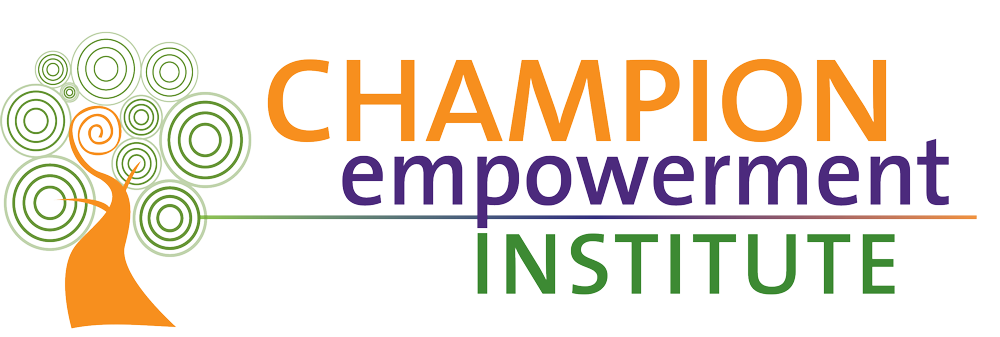Independent Survey of Federal Student Loan Borrowers (2018)
Borrowers Share Their Views on Student Loan Issues and Solutions
“Outstanding student debt reached $1.521 trillion in the first quarter of 2018, according to the Federal Reserve, hitting $1.5 trillion for the first time. Though the marker is somewhat arbitrary, it offers a reminder of how quickly student debt has grown—jumping from about $600 billion 10 years ago to more than $1.5 trillion today—and that the factors fueling the increase aren’t likely to disappear any time soon.”
marketwatch.com/story/student-debt-just-hit-15-trillion-2018-05-08
77% Of Participants Surveyed by Champion Empowerment Are Making Little to No Progress in Paying Down Their Student Loan Debt
Phoenix, Arizona, August 29, 2018—Champion Empowerment Institute, in cooperation with Givling and with guidance from Champion, conducted an independent survey of 1,408 federal student loan borrowers and received feedback from hundreds of participants who voluntarily provided detailed information about their higher education and student loan experiences.
This survey included an invitation for essay-style answers on what these borrowers wished they would have known before taking out student loans. The response was astounding—97% of respondents provided detailed answers on their issues, 86% graduated and received a degree or certificate/diploma, and 92% of these respondents graduated with a bachelor’s, master’s or doctorate degree.

With student loan debt reaching a record of $1.521 trillion in July 2018 and since interest rates on student loans increased July 1, 2018, this borrower-perspective feedback shows that the most urgent issue identified by participants was financial literacy education for student loan borrowers.
As a result of this survey, the following needs were identified:
- FINANCIAL LITERACY EDUCATION with a comprehensive, required curriculum beginning in high school before one applies for student loans, including how borrowing affects life for many years, how to manage compound interest, credit and debt management, and the benefits of borrowing only what is needed.
- PRE-EMPLOYMENT TESTING TOOLS including internships, job shadowing, and personality profiling programs that help students choose an appropriate field of study and where they can ask questions of mentors to better understand the job market and gain realistic starting salary and lifetime income expectations.
- REALISTIC STARTING WAGE ESTIMATORS with easily available searchable information for projected employment opportunities and starting wages at the anticipated graduation or completion date. Students should be able to search and compare geographically before they sign up for a loan to be more realistic about post-graduation opportunities.
- TRAINING ON HOW TO FUND YOUR EDUCATION for high school students and those seeking post-secondary education to identify and apply for grants, scholarships and micro-scholarships, as well as how to spot an unscrupulous source, basics of crowdfunding, finding “free” funding for education and job training and finding employers that offer student loan repayment assistance.
- A CHECK AND BALANCE SYSTEM TO PROTECT BORROWERS FROM OVER BORROWING within federal higher education laws and programs that would minimize borrowing and provide repayment schedules that are affordable, fix repayment schedules that may significantly increase or potentially double the amount owed, do not hold borrowers hostage both financially and emotionally and reward good behaviors for completing college on time and making timely payments.
- MODERNIZING THE CREDIT TRANSFER PROGRAM to increase cooperation with planning curriculum and transfer of credit for degrees taught in community colleges, other institutions and through on-the-job experience will decrease the cost of education.
When borrowers are put into a negative amortization where more interest is accruing each month than is getting paid, the remaining unpaid interest is capitalized or added to the principal balance of the loan which then increases the student loan debt. This is the reason the national student loan debt has increased exponentially since 2009 when the “Income-Driven Repayment Plans” were heavily promoted.
We must also remember that the interest on student loans is profit to the federal government because student loans have been directly funded and collected by the U.S. government since 2010, when the private sector for federal student loans was eliminated from originating any new loans.
Survey Background
Givling, Inc. was launched in December 2016 to fulfill a mission of helping people pay off up to $50,000 in student loan debt through a trivia game that awards significant cash prizes while at the same time crowdfunding the payoff of student loans and, more recently, mortgages. Funding comes from users who pay-to-play Givling, as well as advertising and sponsorship revenue. Anyone can play by collecting Queue Points (QP), by interacting with ads, buying coins, playing FreePlays, participating in sponsorship offers, or meeting group goals. The person with the most Queue Points at the time Givling has an opening in the Queue, moves into the funding recipient position.
In 2017, Champion Empowerment Institute became a primary sponsor and strategic partner for Givling under the direction of Champion, a default prevention company specializing in teaching and supporting long-term success in financial literacy and student loan repayment since 1989.
In the spring of 2018, Champion Empowerment Institute identified the need for a survey that would provide insight that could be used to enhance its financial literacy education and life skills courses. With this goal in mind, a survey was developed and made available to Givling participants. The following 5 participant responses are just a sample to provide a greater awareness of student loan borrowers’ needs and concerns expressed in this survey.

Please, share what you wish you would have known or been better informed about before you took out your student loan:
PARTICIPANT #1 I wish I’d been able to find a better paying job with my degree. I am on a *IBR plan, but am not even able to pay toward the principal. I’ll also have a nasty tax bill if the loans are forgiven. I hope they can’t garnish my social security or I’ll be in poverty anyway.
*IBR is a type of Income-Driven Repayment Plan
PARTICIPANT #2 It is impossible at the age of 18 to truly understand the implications of your choice to obtain student loans to cover the full cost of school. I worked full time to care for myself, while going to school full time. I thought I will have a good paying job after graduation and pay for loans. Not understanding that I could barely even cover the interest and that this debt is a life-long prison sentence and can prevent me from ever being debt free, let alone retire. It’s a daily stress that feels like it will never go away.
PARTICIPANT #3 How much student loans would affect my future well after graduation in regards to buying a home, a car and any credit necessary purchases even if you’ve always paid all of your payments in full and on time.
PARTICIPANT #4 I wish I had had a better understanding of how loans and interest rates work. My parents aren’t great with finances and didn’t offer up much guidance. I wish dual enrollment (earning college credit through local community college) would have been emphasized over taking AP courses. I was told AP would look better on a college application. I wish community college would have been emphasized over going to a 4 year. Community college was looked down upon. I wish I had known more about scholarships and grants while in college. It seemed more for those getting ready to graduate high school/ first year students. I wish I had taken time off between high [school] and college to learn what I really wanted. I wish I had realized sooner that my major wasn’t a good fit. I wish I had thought twice before getting my Master’s Degree. I don’t regret my education and where I’m at today, but would have done so many things differently so it wouldn’t have been so costly.
PARTICIPANT #5 There is so much I wish I knew, but just general budgeting skills alone would have been a huge help. Who cares about calculus when you don’t know the first things about how to start and maintain a monthly budget, regardless of income?

